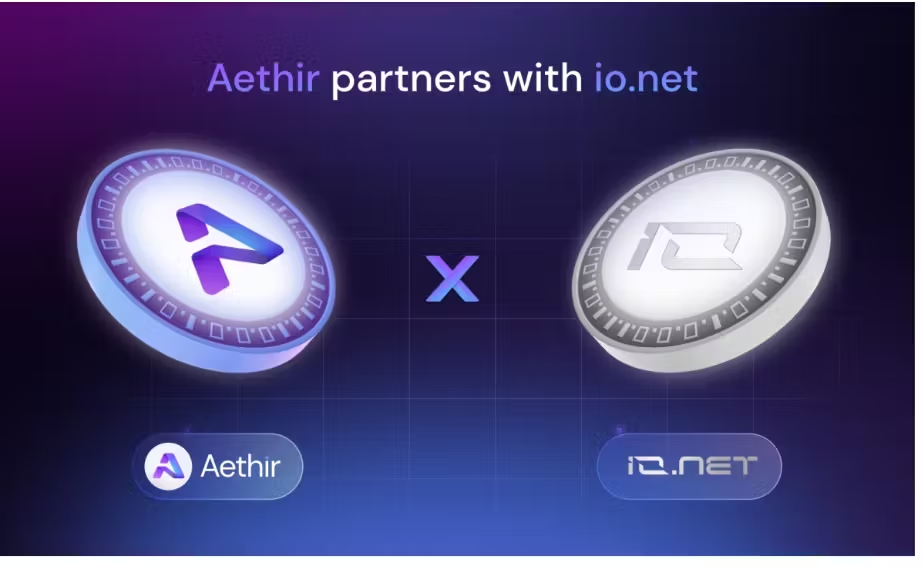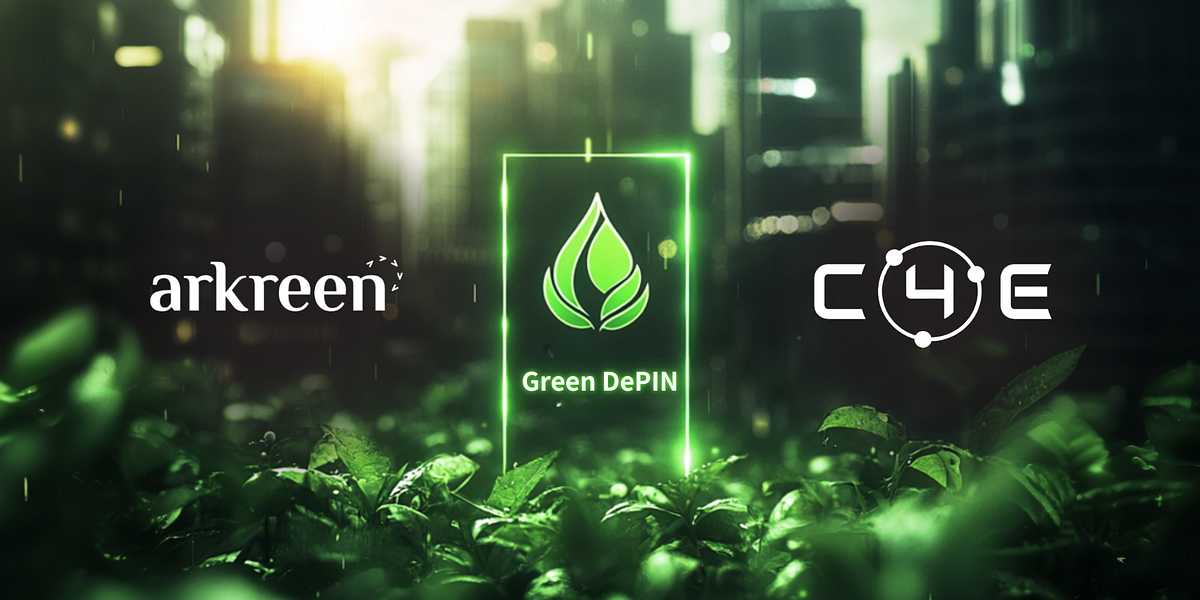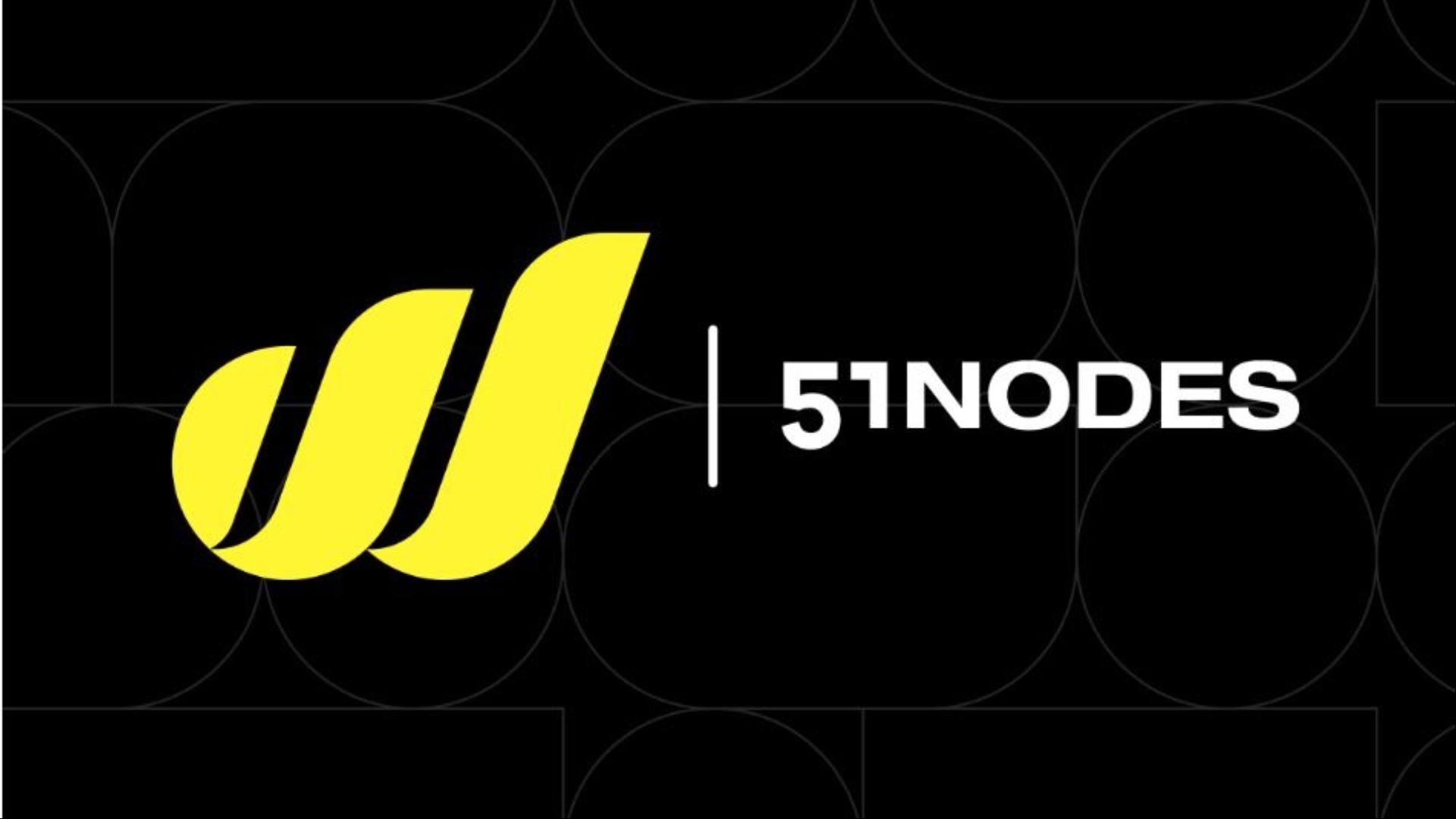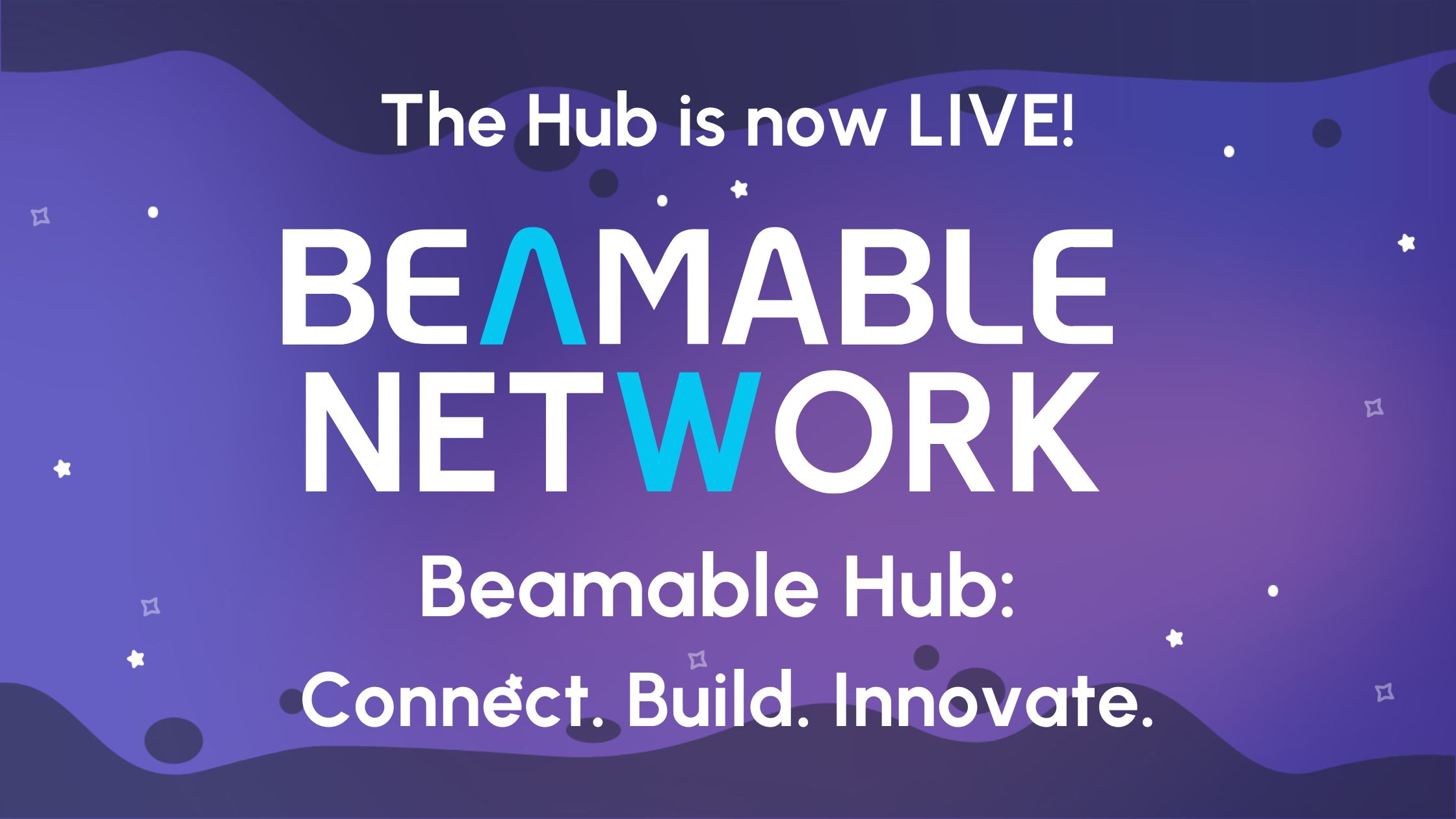Latest DePIN News

2 months ago
Gemini Sets Guinness World Record with Massive Bitcoin Drone Show
Cryptocurrency exchange Gemini recently made headlines by organizing a record-breaking drone show that featured a massive Bitcoin logo, celebrating the US Strategic Bitcoin Reserve initiative. The event took place on March 13 in Austin, Texas, where 1,000 drones were deployed to create the largest aerial display of a currency symbol, officially recognized by Guinness World Records. The show not only showcased the iconic Bitcoin logo but also included depictions of significant milestones in space exploration, such as a rocket launch and moon landing, emphasizing the theme of innovation in the financial landscape.
Gemini's drone display was designed to provoke thought about the future of money, with the Bitcoin logo accompanied by the phrase, "Go where dollars won’t." This creative approach highlights the growing acceptance and significance of cryptocurrencies in the modern economy. Following the event, Gemini received a certificate for achieving the record for the largest aerial display of a currency symbol formed by multirotor drones, marking a significant milestone in the intersection of technology and finance.
The Bitcoin logo itself has a rich history, evolving over the past 16 years through community feedback. Initially created by Satoshi Nakamoto, the logo has undergone several iterations, with the current version featuring a bright orange background and the iconic “₿” symbol. This evolution reflects the dynamic nature of the cryptocurrency community and its adaptability to change. As Bitcoin continues to gain traction, events like Gemini's drone show serve to celebrate its legacy and future potential in reshaping the financial landscape.

2 months ago
Congress Eases DeFi Reporting Obligations, Privacy Concerns Persist
The decentralized finance (DeFi) sector is experiencing a significant shift as the U.S. Congress has voted to nullify a controversial IRS rule that mandated DeFi protocols to report gross proceeds from crypto sales and taxpayer information. This rule, issued in December 2024 and set to take effect in 2027, was deemed burdensome by industry lobby groups and was seen as an overreach of the IRS's authority. The bipartisan vote in the House of Representatives has garnered support from the White House, with President Donald Trump poised to sign the bill into law. However, the DeFi community remains concerned about finding a balance between user privacy and regulatory compliance moving forward.
Privacy issues were central to the objections raised by the crypto industry against the IRS rule. Advocates like Marta Belcher, president of the Filecoin Foundation, emphasized the importance of user anonymity in transactions, akin to cash dealings. The Blockchain Association also criticized the rule as an infringement on privacy rights, warning that it could push DeFi operations offshore. While the rule has been halted, there is still a lack of established privacy guidelines, which industry leaders like Vivek Raman argue are essential for the sector's progression. He stressed the need for clear frameworks that allow for privacy while adhering to Know Your Customer and Anti-Money Laundering requirements.
As the crypto industry grapples with the dual demands of user privacy and regulatory oversight, the question of how to effectively regulate DeFi remains complex. The decentralized nature of these protocols complicates accountability, making it challenging for regulators to enforce traditional financial rules. Despite these hurdles, there is optimism that solutions such as zero-knowledge proofs could facilitate compliance without compromising user privacy. Meanwhile, the Senate Banking Committee's recent approval of the GENIUS Act, a stablecoin bill, signals progress towards a more structured regulatory environment. However, comprehensive regulations for DeFi may still be a distant goal, as ongoing studies aim to assess the risks and benefits associated with these innovative financial systems.

2 months ago
Coinbase Boosts Maple Syrup and Aethir with New Listings
In a significant development within the cryptocurrency market, two Ethereum (ETH)-based altcoins, Maple Syrup (SYRUP) and Aethir (ATH), have experienced substantial price surges following their recent support from Coinbase, one of the largest crypto exchanges in the United States. Coinbase announced the addition of these tokens to its digital asset offerings via posts on the social media platform X. This announcement came shortly after the tokens were included in Coinbase's listing roadmap, which indicated forthcoming support and led to a nearly 40% price increase for both assets.
The price movements of SYRUP and ATH have been remarkable. SYRUP, a decentralized finance (DeFi) protocol that connects borrowers with lenders, saw its price rise from a low of $0.131 on March 12th to a peak of $0.173 within 24 hours, marking a gain of 28.7%. Similarly, Aethir, which focuses on decentralized cloud computing with high-performance GPU capabilities for AI and blockchain-based gaming, increased from $0.034 to $0.040, achieving a 14.4% gain in the same timeframe. These price rallies underscore the impact of Coinbase's endorsement on the market dynamics of these emerging tokens.
The growing interest in both Maple Syrup and Aethir reflects a broader trend in the cryptocurrency space, where decentralized finance and AI-driven solutions are gaining traction. As investors continue to seek opportunities in innovative blockchain projects, the support from major exchanges like Coinbase is likely to play a crucial role in driving adoption and market performance. However, potential investors are reminded to conduct thorough research and exercise caution, as the cryptocurrency market remains volatile and high-risk.

2 months ago
io.net and Aethir Collaborate to Enhance Decentralized GPU Computing
In a significant move for the decentralized computing landscape, io.net and Aethir have announced a strategic collaboration aimed at enhancing GPU access and performance for applications in AI, machine learning, and gaming. By integrating io.net's advanced virtualization technology with Aethir's enterprise-grade distributed GPU cloud, the partnership seeks to create a robust, low-latency, and cost-effective solution tailored for GPU-intensive workloads. This collaboration comes at a time when the demand for GPU computing is surging, with projections indicating that the market could quadruple in size by 2030.
The alliance between io.net and Aethir is designed to provide a highly scalable and efficient solution to meet the growing global demand for GPU resources. io.net’s cutting-edge virtualization and orchestration capabilities will enable AI and machine learning engineers to deploy Ray and Kubernetes clusters seamlessly across a network of over 600,000 decentralized GPUs and CPUs. Meanwhile, Aethir's distributed cloud infrastructure is set to deliver enterprise clients in the AI, machine learning, and gaming sectors with fast and scalable GPU cloud resources, leveraging a network of over 40,000 high-performance GPUs, including 3,000 NVIDIA H100s.
Under the terms of this collaboration, both companies will integrate their ecosystems to offer customers a seamless GPU computing experience across various workloads, including clustering and serverless inferencing. This reciprocal integration will allow io.net’s clustering solutions to be accessible on Aethir’s platform, providing enterprises with a diverse range of GPU-based computing options. Additionally, both companies plan to collaborate on marketing and community initiatives, further enhancing the overall ecosystem. As part of their partnership, an airdrop will distribute $50 million worth of tokens to community members of both platforms, marking a significant milestone in their joint mission to democratize high-performance compute access for all.

2 months ago
Arkreen Partners with C4E to Advance DePIN Energy Solutions
Arkreen has announced a strategic partnership with C4E, focusing on the DePIN Energy sector. This collaboration combines Arkreen's expertise in decentralized renewable energy networks with C4E's advancements in AI-driven energy solutions. The partnership aims to enhance the Green DePIN Initiative, promoting a sustainable on-chain economy globally. C4E is recognized for its pioneering efforts in Web3 technology and green energy innovations, particularly in electric vehicle (EV) charging and decentralized energy management. Meanwhile, Arkreen utilizes blockchain and IoT technologies to connect distributed renewable energy resources, contributing to a carbon-neutral future.
The alliance between Arkreen and C4E represents a significant fusion of technology and vision, driven by a mutual commitment to sustainability. Both organizations are set to explore how DePIN technology can improve the accessibility and efficiency of green energy solutions. This partnership is expected to lead to innovative approaches that will not only benefit the partners but also empower communities worldwide with smarter and greener energy options.
As Arkreen and C4E embark on this journey together, they promise to deliver exciting updates and advancements in the DePIN Energy space. The collaboration is positioned to make a meaningful impact on the renewable energy landscape, fostering a more sustainable future through the integration of decentralized technologies and AI. Stakeholders and communities can look forward to the positive changes that this partnership will bring in the realm of green energy solutions.

2 months ago
Simplifying Web3: Overcoming Usability Challenges for Broader Adoption
Web3 technology is experiencing significant growth, yet its complexity remains a major barrier to mainstream adoption. In the latest episode of the podcast "Hashing It Out," host Elisha Owusu Akyaw engages with Moe El-Shibib and Selim Sezgin, co-founders of Ponder One, to discuss the pressing usability challenges that hinder user engagement. They highlight that while technical advancements in blockchain are impressive, they have outpaced the user experience, making it difficult for newcomers to navigate decentralized finance (DeFi) platforms and manage assets across various chains. The conversation emphasizes the need for a more user-friendly approach to Web3.
To tackle these usability issues, the episode explores innovative AI-driven solutions that can streamline blockchain transactions. By automating processes such as swaps and bridging, AI can significantly reduce the technical knowledge required from users, making interactions more intuitive. Additionally, the discussion touches on the importance of cross-chain functionality, which allows users to interact across different blockchains seamlessly, thus eliminating the cumbersome task of manually switching networks. This focus on simplifying the user experience is crucial for fostering broader adoption of Web3 technologies.
The conversation also delves into the role of decentralized governance in shaping Web3 applications. The Ponder One team stresses the importance of community-driven decision-making, where users can vote on integrations and protocol developments. However, they caution that governance structures must find a balance between decentralization and efficiency to remain effective. As the industry progresses towards integrating real-world assets (RWAs) and enhancing accessibility to DeFi, the future of Web3 will depend on simplifying blockchain technology for everyday users, ensuring a more inclusive ecosystem for all.

2 months ago
51nodes and World Mobile Collaborate to Advance Blockchain Integration in Industrial Applications
In a significant move towards integrating blockchain technology into real-world applications, 51nodes, a prominent German blockchain integration specialist, is partnering with World Mobile to leverage its advanced Layer-3 infrastructure on Base. This collaboration aims to deploy decentralized physical infrastructure solutions and blockchain-powered applications, particularly focusing on data-based tokenized assets within Europe’s industrial sector. A $5 million grant program will support 50 projects, each receiving up to $100,000, to explore various decentralized infrastructure use cases, with major European corporations playing a crucial role in shaping these initiatives.
The initiative emphasizes the importance of tokenizing real-world assets and utilizing decentralized physical infrastructure networks (DePIN) to enhance security and streamline the commercialization of data and financial assets. 51nodes has already showcased the viability of this approach with tier 1 industry clients, demonstrating how tokenizing geospatial data and sensor information can improve industrial processes. As industries increasingly adopt blockchain-powered automation, they must adapt to evolving financial and identity standards, including stablecoins and decentralized corporate identity solutions, ensuring they remain competitive in a rapidly changing landscape.
Through strategic collaboration, 51nodes and World Mobile are optimizing data monetization and enhancing automation with real-world oracles, moving beyond traditional systems. The funded projects may include notarizing sensor data, establishing marketplaces for vehicle-captured insights, and orchestrating decentralized IoT networks in agriculture. Micky Watkins, CEO of World Mobile, highlighted the necessity for industries to automate and secure data to maintain competitiveness, asserting that this partnership will bring real-world asset tokenization from theory to practice, unlocking new value with decentralized infrastructure.

2 months ago
$LITKEY: The Native Token of Lit Protocol
The $LITKEY token has been introduced as the native token of Lit Protocol, serving multiple purposes including work, payment, and governance. It is designed to secure and facilitate services on the Lit Protocol network, which is a decentralized key management system aimed at enhancing web3 development. The upcoming launch of Lit's v1 mainnet, named Naga, will see $LITKEY play a crucial role in network operations, including staking for security and compensating node operators for their contributions. The network currently secures over $150 million in crypto assets and handles millions of operations monthly, showcasing its robust infrastructure for web3 applications.
$LITKEY functions as a work token by incentivizing node operators to maintain network security through staking. This mechanism ensures that operators are financially committed to the network's reliability and performance. Additionally, $LITKEY acts as a payment token, allowing users to pay for various network services, including signing and encryption operations. This dual functionality not only promotes efficient resource allocation but also ensures fair compensation for node operators, thereby enhancing the overall ecosystem.
Governance is another critical aspect of $LITKEY, empowering token holders to influence the protocol's future through a decentralized governance system. Token holders can participate in selecting network operators and shaping the ecosystem's growth through partnerships and integrations. The upcoming Naga mainnet will introduce several enhancements, including a new signing algorithm and a simplified payment model, further solidifying the Lit Protocol's position in the blockchain landscape. With a focus on community growth and ecosystem development, $LITKEY is set to play a pivotal role in the evolution of the Lit Protocol.

2 months ago
Aethir Revolutionizes Gaming User Acquisition with Decentralized Cloud Streaming
Aethir, a decentralized cloud gaming infrastructure provider, has recently been highlighted in a case study by SuperScale, a leading expert in gaming user acquisition. The study delves into how Aethir's innovative cloud streaming technology can significantly enhance user acquisition strategies for gaming studios, offering a scalable alternative to traditional app store distribution. By leveraging web-based streaming, Aethir allows studios to bypass the high service fees associated with commercial app stores, which can take up to 30% of a game's revenue. This independent publishing model not only reduces costs but also improves user acquisition efficiency.
The case study conducted by SuperScale involved a two-phase analysis focusing on Aethir's impact on user acquisition metrics, particularly conversion rates and return on ad spend (ROAS). In the first phase, the analysis of engagement methods such as “Stream Now,” “Instant Play,” and “Download” revealed that 43% more players preferred instant play over direct downloads. Furthermore, click-through rates increased by 35%, and conversion rates for the streaming option were found to be 45% higher than traditional methods. These findings underscore the effectiveness of Aethir's cloud streaming in attracting and retaining users.
In the second phase, SuperScale measured early user engagement and ROAS, comparing behaviors between app store downloads and Aethir's Stream Now feature. The results were compelling, showing that 143% more users engaged with the Stream Now feature, with a 75% increase in day 7 ROAS. Additionally, average revenue per user grew by 93%, and session counts increased by 77%. Aethir's cloud streaming infrastructure presents significant potential for established publishers, live service games, and emerging markets, making it a vital tool for optimizing revenue models and enhancing user acquisition strategies in the gaming industry.

2 months ago
Introducing Beamable Hub: A Gamified Community for Decentralized Gaming
The Beamable Network is making significant strides in the gaming sector with the launch of Beamable Hub, a new gamified community platform aimed at uniting developers, node operators, and Web3 enthusiasts. This innovative hub is designed to enhance collaboration and innovation within decentralized game infrastructure, marking a pivotal shift in how communities engage with gaming technologies. By leveraging Decentralized Physical Infrastructure Networks (DePIN), Beamable Network is at the forefront of transforming traditional gaming frameworks into community-driven ecosystems.
Beamable Hub is not just another online forum; it incorporates gamification to create a dynamic and interactive experience for its users. Members can participate in missions and challenges to earn points, badges, and digital rewards, fostering a sense of achievement and competition. The platform features leaderboards to track progress, referral incentives to encourage network growth, and exclusive NFTs as rewards, enhancing user engagement. Additionally, the integration with popular platforms like Discord and Telegram ensures that community members can stay connected and active, regardless of their location.
The future of online communities is shifting towards gamification, as it promotes deeper loyalty and active participation. Beamable Hub exemplifies this trend by turning passive members into active contributors through rewards and challenges. This approach not only increases retention rates but also strengthens community bonds, making engagement more meaningful. As Beamable’s DePIN project continues to evolve, the Hub stands as a gateway to the future of decentralized gaming, inviting users to join and help shape the landscape of this exciting industry.
Signup for latest DePIN news and updates